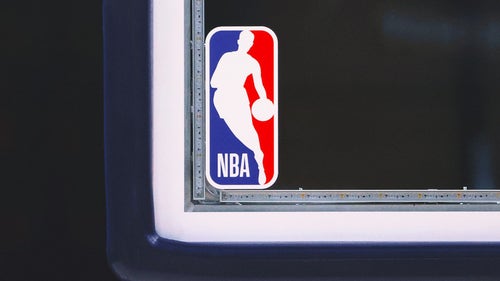
Super Morris Bros: Can the Morris brothers thrive without each other?

Marcus and Markieff Morris tend to operate on the same wave length. "Keef" is seven minutes older than his brother and was drafted one pick and five minutes before him. They both went to Kansas. They lived together while they played for the Suns. They signed four year contract extensions to stay in Phoenix on the same day. And, unfortunately, they also received identical felony assault charges when they beat up a former mentor in April.
Perhaps in response to this incident, in July, the Suns traded Marcus to Detroit for basically nothing--a salary dump. The identical twins didn't respond well to this transaction. "Everybody knew how bad I wanted to play with my brother," said Marcus. "[The trade] was kind of a slap in the face." Now the question is, will the Morris brothers be as productive on the court while not playing with their genetic counterpart?
Probably not. Last season when Marcus was on the the court and Markieff wasn't, Marcus shot 42.4% from the field, sported an effective field goal percentage of 49.7% and turned the ball over eight times per 100 possessions, per NBA Wowy. When Marcus played with his brother, he connected on 44.4% of his shots (+2%), had an effective field goal percentage of 51.7% (+2%) and turned the ball over 1.6 times less per 100 possessions. Differences in rebounding and shot selection (i.e. what percent of total field goal attempts were jumpers, drives, etc.) were negligible, with Marcus performing at an almost consistent rate regardless of his brother's presence.
Markieff experienced similar shooting bumps when he played with his bro. Alone, he shot 44.2% from the field and had a 46.6 effective field goal percentage. With Marcus by his side, Keef shot 49.8% from the field (+4.6%) and had a 52.6 effective field goal percentage (+6%). Markieff turned the ball over at a higher rate with his brother, but interestingly, his assist percentage (the percentage of teammates field goals he assisted) jumped 3.4 points (from 10.5 to 13.9) with his brother on the floor. That he turned the ball over more and assisted more makes sense for two reasons. Firstly, assists and turnovers have a positive correlation (the more a player passes the more chances that pass is intercepted). Secondly, a higher assist percentage can be chalked up to brotherly love; Keef has a propensity to share the rock with his brother, like he does here:
According to NBA.com, Markieff threw more passes per game to only three Suns players, two of which were starting guards (Eric Bledsoeand Goran Dragic). So, Marcus played the seventh most minutes on the team but received the fourth most passes from Markieff. These passes also led to makes at a relatively high rate. Keef threw 0.4 assists per game to his brother, tied with Dragic (who Keef passed to twice as much per game when compared to Marcus) for most among all his teammates.
So we've established that the Morris Bros shoot better and pass more when they share the floor, but how does their team play when they share the floor? Per NBA.com, among Suns lineups that played more than 20 minutes last year, the top six offensive squads (ranked by points scored per 100 possessions) all featured one, but not both, of the Morris bros. Similarly, four out the five top defensive lineups had one Morris brother, but only one had both.
For the whole 2014-15 season, Phoenix was most effective on offense with just Marcus on the floor, scoring 1.074 points per possession (versus 1.065 ppp with just Keef and 1.069 ppp with both). In contrast, on defense the Suns were best with just Markieff on the floor, conceding 1.036 points per possession (versus 1.112 ppp with just Marcus and 1.058 ppp with both). Thus, on the whole, the Suns might expect their defense to improve and their offense to soften due to theMarcus Morris swap.
What's worth noting here is that the above analysis doesn't occur in a vacuum. When the Morrii share the floor, they do so with three other players, all who effect points per possession calculations. Further, it's important to not mix correlation and causation. For instance, maybe Markieff passes more when Marcus is on the floor because Suns' coachJeff Hornacek plays Marcus with other good offensive players, and Keef is really looking for them as well as his brother.
Finally, it's hard to assess the emotional impact that the trade will have on the Morris' games. They've played together their whole lives and will need to adapt in each other's absence.
Either way, this separation was bound to happen at some point. The NBA is a business, and business decisions don't always consider player predilection. Hopefully each brother can develop on his own and help his respective franchise rebuild.
More from The Sports Quotient:



